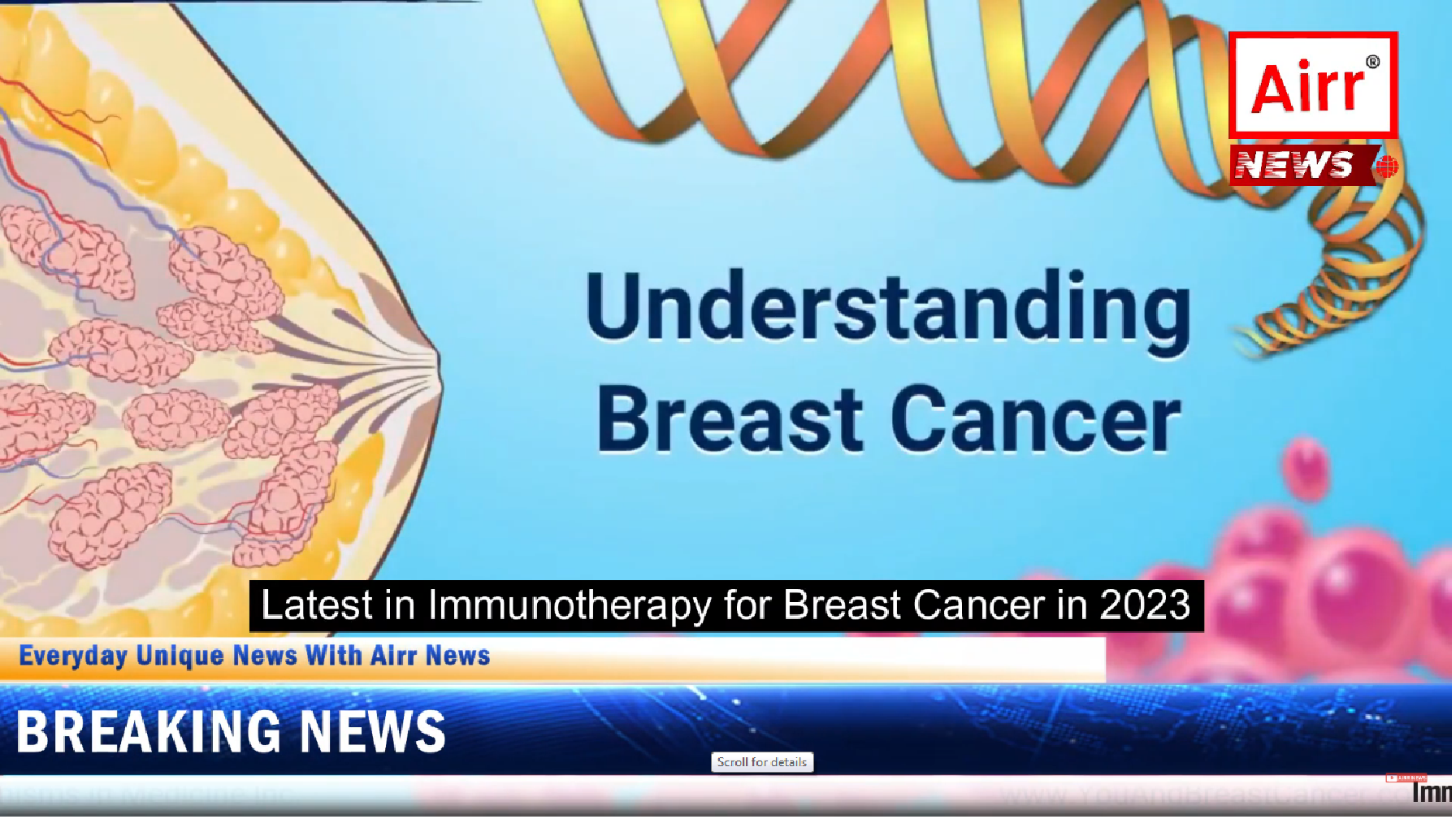In this episode, we will explore the latest development in breast cancer care in 2023. But first, please like the video and subscribe to our channel for more such content in the future. Push the bell icon to receive updates every time we upload a video.
Immunotherapy harnesses the power of the body’s own immune system to fight cancerous cells. Neoadjuvant chemotherapy combined with PD-1 inhibitor pembrolizumab is the new standard in treating high-risk breast cancer.
Although tumor-infiltrating lymphocytes (TILs) can be found in some cases, Breast cancer is often diagnosed with low tumor mutational burden (TMB). TLS is found in a more aggressive form of the disease. Recent research in the field of breast cancer has revealed that Immune Checkpoint Inhibitors (ICIs) are effective in the early and late stages of breast cancer.
An article published on Cold Spring Harbor Perspectives in Medicine mentions the following:
“Recent work demonstrates that immune checkpoint inhibitors (ICIs) targeting the programmed cell death 1 receptor (PD-1) or its ligand programmed death ligand 1 (PD-L1) is effective in the treatment of both early- and late-stage TNBC, resulting in multiple health authority approvals around the world. Intense investigation into the potential efficacy of immunotherapy for other breast cancer subtypes is ongoing.”
While it is true that normal breast tissue does not contain agreeable levels of immune cells, the chances of breast cancer harboring TILs are extremely high.
Pembrolizumab is an immunotherapy drug that increases the longevity of a triple-negative breast cancer patient when added to chemotherapy.According to clinical trial, KEYNOTE-355, the overall longevity of patients increased who had high levels of PD-L1 protein.
An article published on National Cancer Institute mentions the following:
“In the trial, KEYNOTE-355, overall survival improved only among patients whose tumors had relatively high levels of the PD-L1 protein—a PD-L1 combined positive score of at least 10.
Among patients with this combined positive score, median overall survival was 23.0 months for those who received pembrolizumab and chemotherapy versus 16.1 months for those who received chemotherapy alone. These results are based on a median follow-up of 44 months.”
Triple-negative breast cancer is a more aggressive form of the disease and is difficult to treat. The chances of the disease coming back remain extremely high in such patients. Several studies have shown that conventional chemotherapy drugs are not effective in triple-negative breast cancer.
The National Cancer Institute article mentions:
“’This is an exciting time” for research on triple-negative breast cancer, said Dr. Lee. ‘We have now seen a benefit from an immune checkpoint inhibitor and chemotherapy’ in a subgroup of patients in both the advanced and early stages of the disease…
In his editorial, Dr. Pivot noted that people diagnosed with triple-negative breast cancer are not a homogeneous group. Future studies, he added, will try to identify which individuals are more or less likely to benefit from pembrolizumab.”
How did you find this information? Please mention this in the comments section. We would also like to know the kind of content you want to watch, and we will try to create it for you. For more news and updates, follow Airr News.
#BreastCancer #Tumour #CancerSurvival #CancerFree #Chemotherap #FDAApproved #CancerMaintenanceTherapy #ClinicalTrials #DNADamage # pembrolizumab #TILs #TMB #ImmuneCells #TripleNegativeBreastCancer

